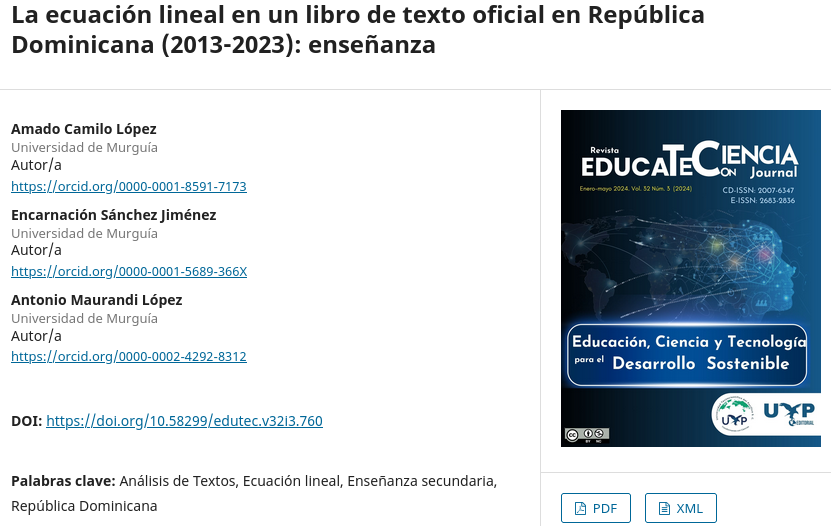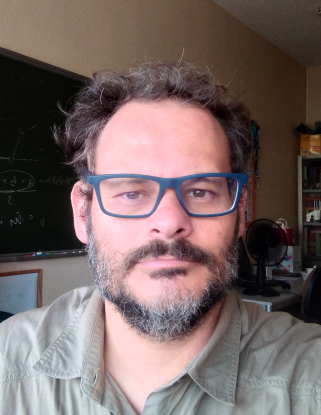La ecuación lineal en un libro de texto oficial en República Dominicana (2013-2023): enseñanza
Published in EDUCATECONCIENCIA, 2024
Recommended citation: Camilo López, A., Sánchez Jiménez, E., and Maurandi-López,A. (2024). La ecuación lineal en un libro de texto oficial en república dominicana (2013-2023): enseñanza. EDUCATECONCIENCIA, 32(2):6–37, DOI:https://doi.org/10.58299/edutec.v32i1.760 https://doi.org/10.58299/edutec.v32i3.760
Resumén: The purpose of this paper is to analyze the proposal of the textbook Mathematics 1, Secondary Educationof the Ministry of Education of the Dominican Republic for the teaching of the linear equation with one variable. The methodology employed is based on the use of tools from the Anthropological Theory of the Didactic, devised by Chevallard, which constitutes the theoretical framework for the present study, and which have enabled us to identify certain aspects related to the mathematical organisation proposed in the textbook. The results indicate that the proposed and solved activities contained in the analysed unit obey a mathematical organisation more located in the practical block than in the theoretical block. This implies a rational justification of how to make the task more intelligible, which would require the incorporation of novel and challenging praxeologies that would mobilise the critical-analytical sense of the participants.
Abstract: The purpose of this paper is to analyze the proposal of the textbook Mathematics 1, Secondary Educationof the Ministry of Education of the Dominican Republic for the teaching of the linear equation with one variable.The methodology employed is based on the use of tools from the Anthropological Theory of the Didactic, devised by Chevallard, which constitutes the theoretical framework for the present study, and which have enabled us to identify certain aspects related to the mathematical organisation proposed in the textbook. The results indicate that the proposed and solved activities contained in the analysed unit obey a mathematical organisation more located in the practical block than in the theoretical block. This implies a rational justification of how to make the task more intelligible, which would require the incorporation of novel and challenging praxeologies that would mobilise the critical-analytical sense of the participants.

